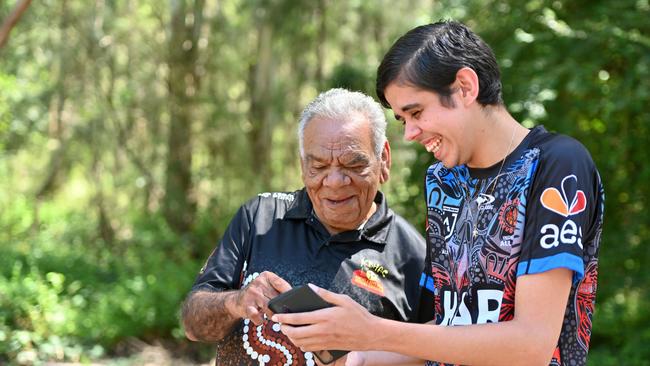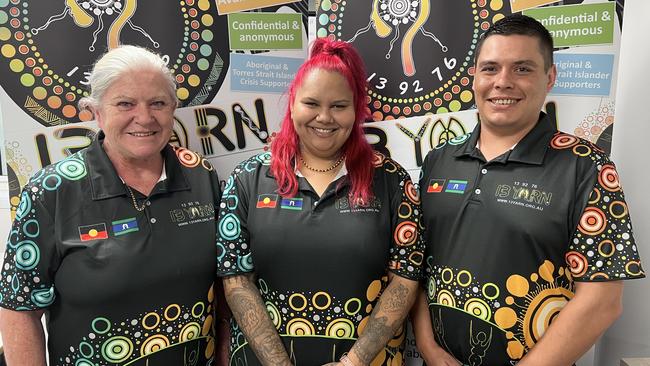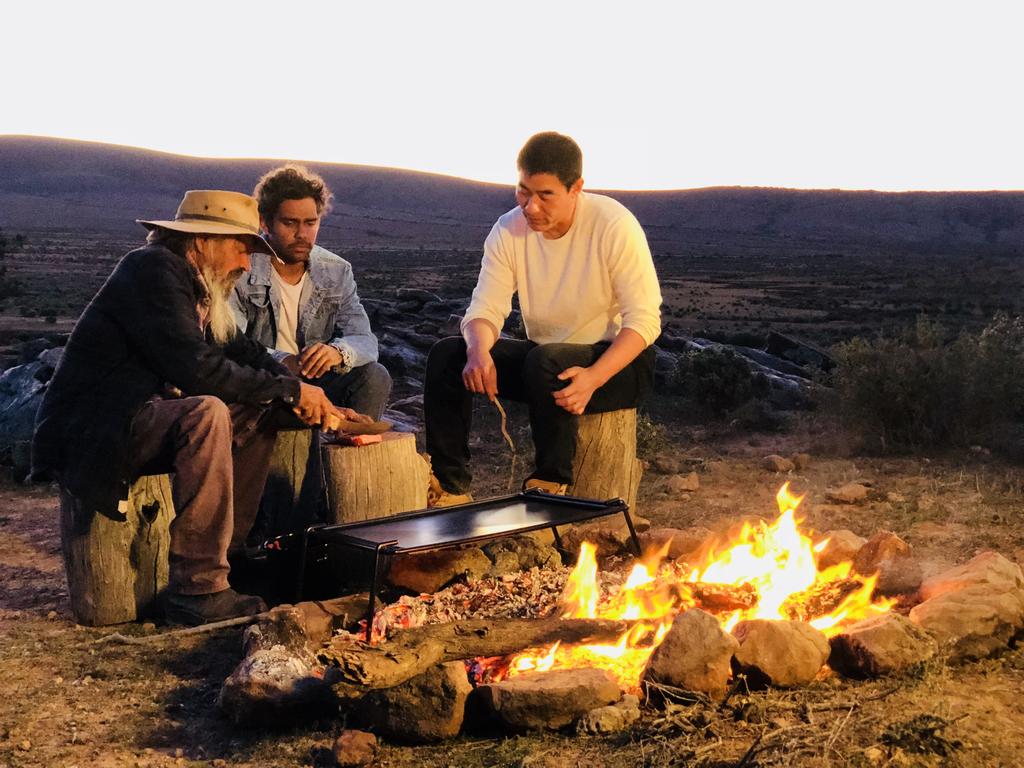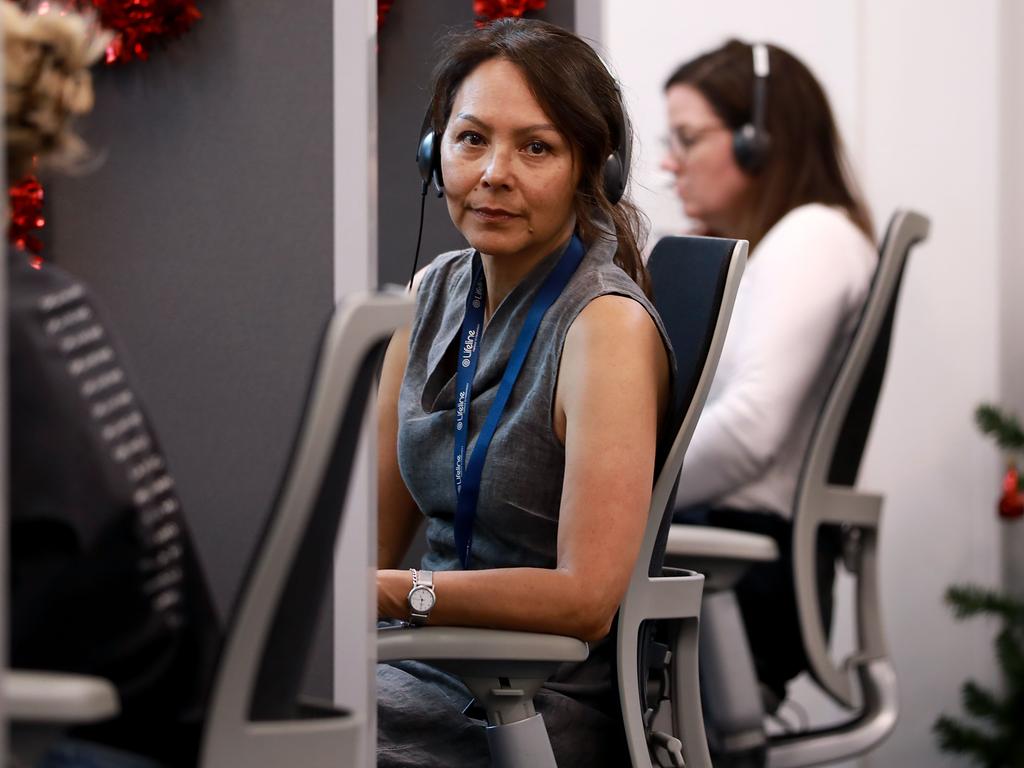Nation’s first Indigenous crisis line set up to help those in need
The nation’s first Indigenous-led crisis hotline has been established to provide a culturally sensitive space for those in need.

The nation’s first Indigenous-led mental health crisis hotline has launched, providing a confidential and culturally sensitive ear to Aboriginal and Torres Strait Islander people in need.
Federal Health Minister Greg Hunt is set to announce the new service 13 YARN on Friday, as well as a three-year commitment totalling $16.6m but the service was quietly rolled out earlier this month as dozens of trained Aboriginal and Torres Strait Islander people began working out of Lifeline centres along the east coast.
A total of 30 staff have been responding to crisis calls on the line in NSW in Dubbo, Bathurst, Nowra and Wollongong as well as Cairns, Townsville, Ipswitch and Bundaberg in Queensland. A further six work in Lifeline’s main office. Among them is Marjorie Anderson, the national program lead.
Ms Anderson, who began working on 13 YARN in October, said some of the early feedback from the program highlighted the importance of having crisis workers of the same cultural background.
“Black fellas understand black fellas. Even though there’s a lot of diversity in Aboriginal communities, we have that underlying brotherhood and sisterhood within the community” she said.
“Some of our feedback showed that every time people reached out for help, often with a non-Aboriginal service, they really had to sit down and educate the person who was helping them on family dynamics and community dynamics and how the Aboriginal community operates before they could get the help they needed.”
13 YARN has incorporated a number of cultural aspects into its service which can be heard from the moment you pick up the line, Ms Anderson said.
“We’ve taken a real conversational approach. It doesn’t sound like a professional line with a voiceover actor; in fact, it’ll be my voice that you hear,” she said.

The wait music includes a calming soundtrack made with indigenous instruments developed by former NSW Aboriginal woman of the year nominee Nikita Ridgeway, of the Biripi and Bundjalung people of the Mid and North coast of NSW.
“What I’ve done is incorporated a lot of research into sound therapy and how it evokes certain feelings and thoughts around common finding in times of crisis,” she said.
Ms Ridgeway said a lot of people are familiar with the didgeridoo and clapping sticks but they might not realise they can actually be played in a very calming way.
Lifeline chief executive officer Colin Seery said that while 13 YARN staff will operate out of Lifeline centres, the service will exist its own right.
“From our point of view, there was no value in duplicating our infrastructure,” he said. “The program is more about utilising our infrastructure and capability but allowing First Nations people to develop the program,” he said.
Ms Anderson said 13 YARN’s diverse staff, which included members of the stolen generation would help break down existing stigma surrounding mental health in indigenous communities
“Aboriginal people are more inclined not to talk at all about mental health or they seek from one or two elders in the community that they respect which often overloads those people mentally as well,” she said. “There should be no shame, get help and we can get you healthy.”
“We’re really just culturally safe space for people to ring when they’re not feeling good. 13 YARN is built for Aboriginal people by Aboriginal people.”
Need to have a yarn to somebody? Call the 13 YARN on 13 92 76 or call or text Lifeline on 13 11 14 or 0477131114.






